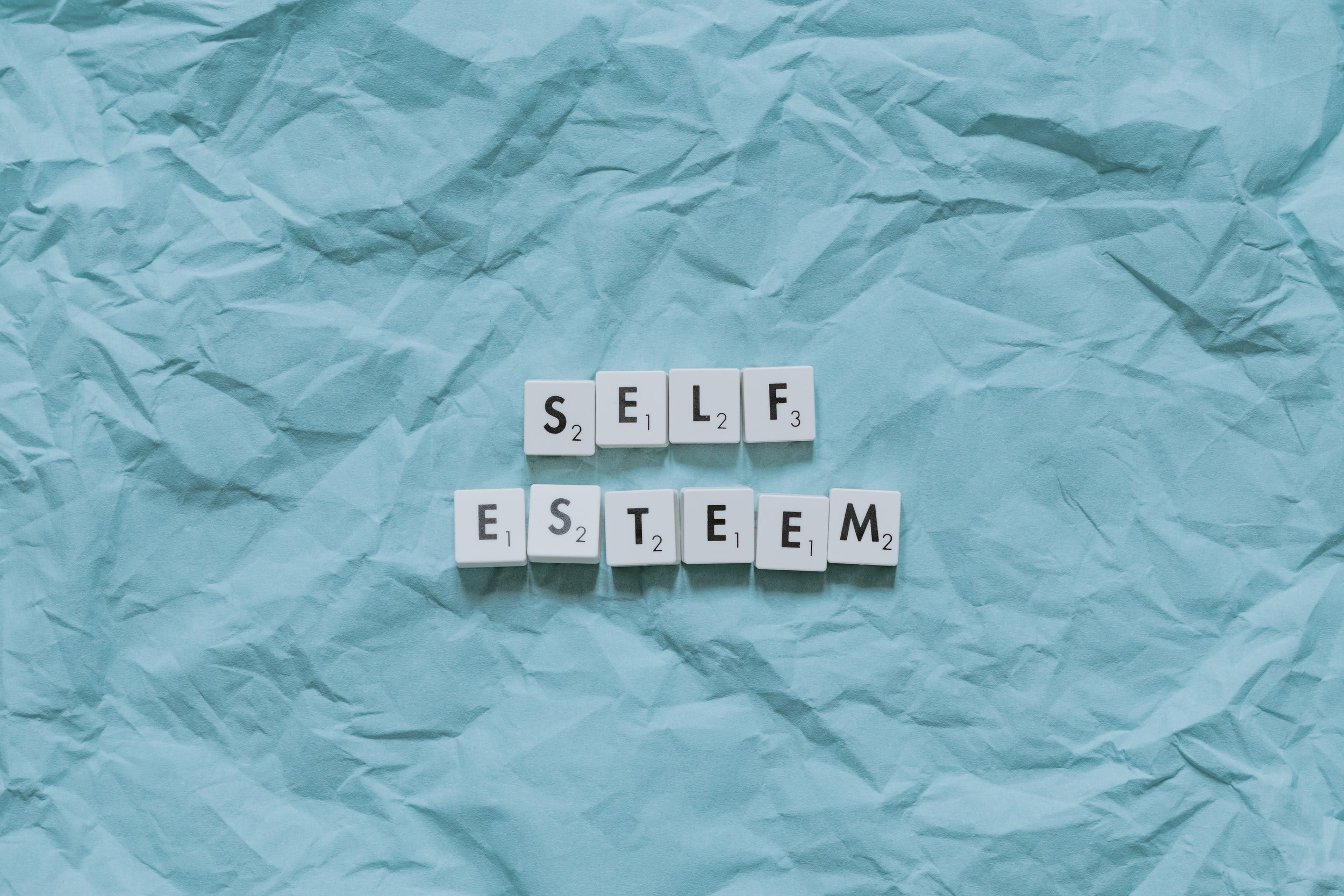
Low Self-Esteem & Menopause
There is a link between lost oestrogen, loss of confidence and low self-esteem during peri-menopause – affecting the way you see yourself and maybe bringing imposter syndrome with it. These peri-menopause mental health symptoms have a big impact on how you perceive yourself at work. Learn how to raise your menopause self-confidence.
Physical and psychological changes, alongside ageist attitudes, can take a toll on women as they get to grips with hormone changes and menopause. In a society that values youth and beauty, it’s easy to feel overlooked and as women report, invisible with jobs, promotions, and project responsibilities being left in the balance.
As self-esteem drops, you may find yourself lying awake at three in the morning fretting over work and whether you’re really on it and able to do it. Imposter syndrome and perimenopause collide! It´s funny that we forget about all the stuff that we’re doing well - multi-tasking and looking after others – finding ourselves dwelling on self-doubt.
What causes low self-esteem in menopause?
Menopause can hit you like a high-speed train, or furtively creep up on you, reaching into all areas of your life, uninvited. You find yourself confronted with challenging issues that may impact your perception of yourself. A mix of physical, emotional, and psychological changes take place, but you didn’t choose the menopause trip and you don’t have the road map - making you feel lost and crushing your self-esteem.
All bodies change as we age, with women having the added bonus of menopause to deal with, bringing for many – weight gain, hair change, wrinkles, and the effects of gravity. Changes may make you feel less confident and less like the person that you thought you were. Spoiler but this is by far the doom and gloom scenario that gets all the attention. Menopause
How to rebuild confidence in menopause?
You’ve got this far dealing with a few bumps in the road here and there. Menopause can be a dramatic bump for some but as with most of life’s ups and downs, there are things we can do to improve what we’re going through.
Look after your body, get stronger and as a side effect enjoy an improved boost to the mood as the dopamine and serotonin, ‘the confidence’ chemicals, are released. Carry out a health audit - what can you change, or improve? You’ll know the things – tweak your diet, a little less of the alcohol that can on one hand give you a boost and on the other hand, act as a depressant bringing you down – affecting sleep, making you feel more anxious, and hitting your self-esteem in menopause.
Don’t give into ageist tropes about eternal youth and unblemished skin. Accept what you see in the mirror – those lines and wrinkles show a life well lived. Own your successes and don’t compare yourself negatively to others.
Conversely, and not something we hear enough about, many women feel more confident, less likely to suffer fools, and happy to put themselves first. This is a place we’d all like to find ourselves in – thinking of the plane oxygen mask analogy, prioritising your own needs, and putting your needs first before trying to help others. Making changes to your diet and lifestyle and going easy on yourself means that you can learn to enjoy the next phase of your life.
Do yourself a favour and own your successes -however small -and don’t compare yourself to others.
Low self-esteem in menopause - where to get help
If low self-esteem is impacting your mental health, and everyday life, you may need professional support. Your doctor can tell you about referral options for talking therapies and CBT in your area, or find out if you can refer yourself by checking on the Psychological Therapies (IAPT) site. Fee-charging, private therapists can be found at: It´s Good To Talk.
Talking Therapies may help
It’s good to talk! If issues thrown up by menopause impact the way you see yourself and the way you think others see you, you may find talking therapy, such as counselling, or Cognitive Behavioural Therapy (CBT) helpful. CBT helps you to deal with problems by changing the way you think and behave.
Homeopathy
Homoeopathic remedies may give you a more positive outlook and a feeling of well-being. As Homeopathy looks at the individual as a whole, a woman with menopause symptoms is likely to be prescribed a constitutional remedy that takes account of her physical, mental and emotional health. Find a homoeopath through the British Homeopath Association.
Supplements
There’s a myriad of menopause-specific supplements but there’s no magic pill for raising self-esteem.
HRT can help with menopausal symptoms which might be impacting your self-esteem. These symptoms may return when you stop taking HRT, but when they do you may have more time and space to deal with this. Others take the view that it’s better to get it out of the way now. It’s your menopause, you decide what works for you.
The usual caveat here is that HRT is something to be discussed with your doctor, as there are pros and cons to taking HRT. We don’t take a view. It’s for you to decide whether it’s for you or not.







How do we cope when we’re overwhelmed? Dr Anita Goraya shares practical advice about how using CBT can help us to reframe situations - CBT and menopause, a perfect pair.